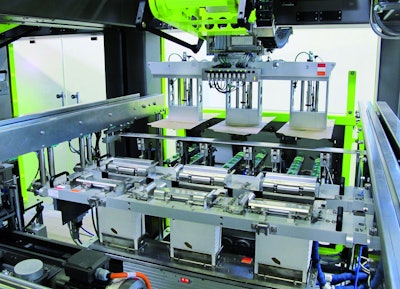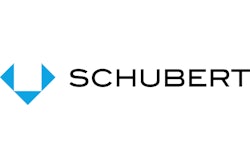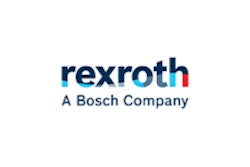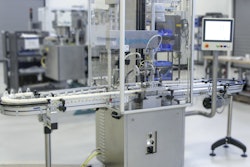Creating environmentally responsible products of the best quality and at the lowest possible price is the philosophy of Natures Organics, an Australian manufacturer of personal care and household cleaning products.
In the past, the company’s hair care line used four pieces of case packing equipment—a lane divider, bundle wrapper, case packer, and palletizer. The line stretched more than 45m long, producing a case of 24 bottles in a plastic-wrapped 4x6 bundle, at a speed of 10 cartons/min.
Trouble was, the retail market selling Natures Organics products sought a more shelf-ready pack containing just four bottles. The company’s case packing and palletizing process couldn’t accommodate these retail demands, or produce the four-packs at the required speeds. Coupled with the excessive length of the line given the facility’s limited floorspace, change was necessary.
Line justification
Equipment expenditures, however, cannot be done without economic justification. Natures Organics Managing Director Justin Dowel scrutinizes each and every investment option for the company to determine whether it will contribute to the quality and cost efficiency of production over the long term.
In the company’s search for a new case packing and palletizing line, Gerhard Schubert GmbH proved to be the only provider capable of solving all of Natures Organics technical challenges in the limited amount of space available at the facility.
Represented in Australia by Selpak Automation, the Schubert equipment delivers performance options and overall operating costs that made the line a sustainable purchase.
Bill Seremetis, Manufacturing Engineer at Natures Organics, explains that the company had previously purchased other equipment from Selpak. “We asked them to look into solutions for our manufacturing requirements and they came back with a proposal to use Schubert. We had investigated a number of different machine manufacturers but for the case sizes (single facing x four bottles deep) and for the required speed of 220 bottles per minute, the Schubert equipment offered the best all-around solution. The other proposals would have required from two to four different machines to achieve the same solution. But floorspace in our manufacturing site is limited, so the overall footprint of the machines was critical.”
The new Schubert TLM (Top Loading Machine) line comprises four sub-machines that altogether operate in just a 12-m-long x 4.3-m-wide space. The TLM technology integrates all the needed functions so that both spatially, and in terms of software, everything is under a single roof. It results in only one line management system and a single employee operates it.
The case packing and palletizing line for shampoo and conditioner was commissioned in March of 2013 and handles the following sizes and output levels:
• Two 400-mL and one 500-mL PET bottle with an oval basic shape
• Case packing of four bottles at a time, in a single row
• Palletizing of five case layers
• Speeds of 220 bpm (and 55 cases/min) for all sizes
• Eight pallets/hr
Vertically integrated facility
Natures Organics’ vertically integrated facility produces the majority of its own bottles. For its rPET (recycled PET) bottles, the company uses injection/stretch-blow molding machinery from Aoki. For recycled high-density polyethylene (rHDPE) bottles, the company uses extrusion blow-molding equipment from Automa/Sipa. For caps, Natures Organics employs injection/blow-molding equipment from Nissei.
The Natures Organics factory in the outskirts of Melbourne measures more than 40000 sq m and houses all the company's departments. Raw materials for the company's products are mixed in tanks from five to 30 metric tons and delivered to filling lines.
Bottles arrive from the molding department in bulk. Operators transfer bottles into a hopper that then feeds a bottle unscrambler.
From there the bottles travel to the filling and capping machinery.
Next, a PET shrink sleeve is applied to each bottle before conveying through a shrink tunnel. A Quality Control person then checks the sleeve-labeled bottles, which proceed to the Schubert line.
Transmodul transport system
The production of shelf-ready packaging creates multiple challenges, says Seremetis. Relative to its height, the case has a small footprint. To achieve the high number of working cycles required, the cases have to be securely stabilized so that they don't fall over. Schubert utilizes its Transmodul for this purpose. The patented Transmodul is an intelligent rail-based transport robot. The transmission of energy and data on the line is contactless.
Seremetis describes the Transmodul as “a transport system in the center of the TLM that moves the product from one process to the next. The Transmodul sits on a track. Power is transferred inductively and communication is via Wi-Fi, so there are no cables connected to it.”
Exchangeable size plates lie on the Transmodul transport carriage. For Natures Organics, the plates fit the shelf-ready cases. A three-track magazine with die-cut case blanks is located in the first sub-machine. A TLM-F3 robot removes three case blanks with attached lid from the magazine and transfers them to a TLM-F2.
The two-axis robot guides the blanks past a hot-glue nozzle, erects the top-loading cases in a folding frame and places the cases onto an area on the Transmodul waiting for them down below. The cases are securely held in place during all process steps.
To assist the gluing of the flap on the inside of the case lid, Schubert provided two two-axis TLM-F2 robots. One robot is used to close the case, while the second is used to press on the lateral surface of the case.
Bottle loading and downstream palletizing
Bottles arrive from the filling line and are also fed into the first sub-machine, in single file. A grouping chain separates the bottles and guides them to a grouping table.
The Transmodul moves to the bottle loading station, which is the second sub-machine. There, a TLM-F2 robot picks up the bottles from the grouping table and places them into the cases. When the filled cases then pass through the sealing station, hot-glue nozzles apply adhesive onto the lid flaps of the case.
A TLM-F2 robot closes the cases at the third sub-machine. Another TLM-F2 robot also presses on the side of the lid. This robot picks up the cases, turns them 90 deg then places them onto the transfer conveyor to the palletizer.
The palletizer, which represents a Schubert first in Australia, serves as the fourth sub-machine. A servo-driven collation unit serves to pack and buffer cases. The TLM-P4 palletizing robot picks up the cases and places them on the waiting pallet. The finished pallet leaves the line and is transferred to a stretch wrapper.
A pallet magazine holds up to 10 empty pallets. From there, individual pallets are transferred into the loading station. The palletizing robot first places a paperboard slipsheet taken out of a magazine, onto the base of each new pallet.
Satisfied with service, too
Since the line was commissioned, its performance data has satisfied output expectations. The case packing and palletizing line continues to run reliably. Size changes are handled quickly, and when size parts need to be exchanged, the line starts up again immediately at full output, without the need for any readjustments and zero ramp-up time.
An integrated Electronic Service Module (ESM) indicates upcoming maintenance work and signals when wear parts need replacement. Should an error message appear, the operator receives instructions on how to remedy the error.
Another benefit of the line is that changeover times have been reduced from two hours to 20 minutes, “without the need for additional fine-tuning once production starts,” says Seremetis. “With the Schubert line, once you conduct the changeover and press the start button it runs at full speed without the need for fine-tuning.”
He attributes the changeover improvements to Schubert’s tooling design. Says Seremetis, “It is also flexible enough to allow for future change, so if Natures Organics decides to change from a current design to let’s say a tray and hood, the Schubert machine can be adapted to do that by adding additional modules.
“Our productivity increased from only having one machine for the operator to attend to rather than four. On average we have increased output per shift by 20 percent.
“Most operators were apprehensive at first as this was the most advanced piece of equipment we had onsite, but once they were trained and became used to using it, they all preferred the Schubert. The Selpak staff are also well trained in the programing and troubleshooting of the Schubert machines, and it is great having someone local that can help with any issues that may arise.”
"I'm very happy with the service provided by Schubert and Selpak,” says Dowel. “These specialists understand what we needed and helped us to find the ideal solution. Freeing up needed space made room for a pallet stretch wrapper, which serves all five production lines. With this line, we're able to continue developing. When new requirements come up, Schubert can easily adapt the line thanks to its modular TLM design."
Controls system
Line controls are provided by Schubert VMS-UNI 4 systems as well as machine and motion controls from Bosch Rexroth.
The VMS packaging machine controller contains all the functions required for controlling the TLM (Top Loading Machine) at Natures Organics.
Robots and their tools, Transmodule, NC axes, frequency converters, positioning drives, scanners, cameras, user guidance, fault visualization, PLC functions, the integration of devices from other manufacturers and coupling to higher-order software systems are all integrated into a single program in the VMS.
Communication between modules and their periphery is handled via Sercos III, a real time-capable Ethernet-based bus system. A global Sercos ring links all VMS modules together. Each sub-machine features a local Sercos ring which makes possible the connection between the VMS module of the sub-machine and the bus subscribers used in the sub-machine, such as drives and digital input/output nodes.





























